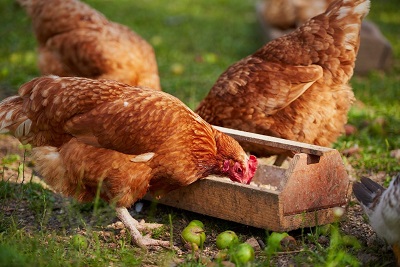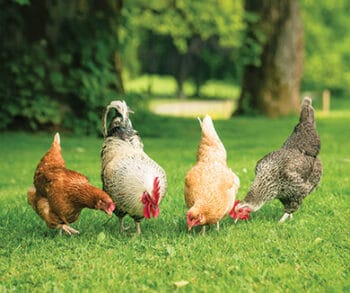From Hatchling to Adult: Understanding the Growth Timeline of Chickens.
How long does a chicken take to grow? The time it takes for a chicken to grow from hatching to full maturity depends on the breed of chicken and the purpose for which it is being raised.
Generally speaking, it takes about 16-24 weeks for a chicken to reach maturity, with some breeds taking longer or shorter amounts of time.
Broiler chickens, which are raised for meat, are typically ready for processing at around 6-8 weeks of age.
Layers, which are raised for egg production, can take anywhere from 16-24 weeks to begin laying eggs, with some breeds taking even longer.
It’s worth noting that chickens will continue to grow and mature throughout their lifespan, with some breeds living for up to 10 years or more.
Which poultry farming is most profitable
The profitability of a poultry farming business depends on various factors, such as the type of bird, the size of the farm, the cost of feed and other inputs, and the market demand for the products. However, in general, the following types of poultry farming are considered to be among the most profitable:
- Broiler farming: Broilers are chickens that are raised for meat production. This type of poultry farming is considered to be highly profitable because broilers grow quickly and can be processed for meat within 6-8 weeks.
- Layer farming: Layers are chickens that are raised for egg production. This type of poultry farming can be profitable because layers can produce a large number of eggs over a long period of time.
- Quail farming: Quails are small birds that are becoming increasingly popular for their eggs and meat. Quail farming can be profitable because these birds mature quickly and have a high rate of egg production.
- Duck farming: Ducks are another type of poultry that are raised for meat and eggs. Duck farming can be profitable because ducks are hardy birds that can thrive in a variety of environments and can be raised on a small scale.

It’s important to note that profitability can vary depending on the specific conditions and management practices of each farm. It’s recommended to conduct thorough research and planning before starting any poultry farming business to maximize profitability.
Which chicken is best for farming
The best chicken breed for farming depends on the purpose of the farm, as different breeds are better suited for meat production or egg-laying. Here are some of the most popular breeds for both purposes:
- Meat production:
- Cornish Cross: This breed is a popular choice for commercial meat production due to its fast growth rate and high feed conversion efficiency.
- Broilers: Broilers are a type of chicken that are specifically bred for meat production. They grow quickly and have a high meat-to-bone ratio.
- Egg production:
- Leghorn: Leghorns are known for their high egg production rates, with some hens capable of laying up to 300 eggs per year.
- Rhode Island Red: Rhode Island Reds are a dual-purpose breed that can be raised for both meat and eggs, but are particularly prized for their large brown eggs.
- Australorp: Australorps are a hardy breed that are known for their high egg production rates and calm temperament.
It’s worth noting that there are many other chicken breeds available that may be well-suited for specific farming purposes, depending on factors such as climate, local market demand, and the farmer’s personal preferences and management practices.
What food makes chicken grow faster
To help chickens grow faster, it’s important to provide them with a balanced diet that meets their nutritional needs. Here are some key components of a chicken’s diet that can help promote healthy growth:
- Protein: Protein is essential for muscle development and growth. Chickens require a diet that contains at least 16% protein, with higher levels recommended for meat birds.
- Carbohydrates: Carbohydrates provide energy to support growth and activity. Chickens can obtain carbohydrates from sources such as corn, wheat, and other grains.
- Fats: Fats are important for maintaining healthy skin and feathers, as well as providing energy. Sources of fat in a chicken’s diet can include vegetable oils, fish meal, and other protein-rich feed ingredients.
- Vitamins and minerals: Chickens require a variety of vitamins and minerals to support growth and overall health. A complete commercial poultry feed will usually contain these essential nutrients, but it’s also possible to supplement a chicken’s diet with fresh greens and other foods to provide additional vitamins and minerals.
In addition to providing a balanced diet, it’s important to ensure that chickens have access to clean water at all times, as dehydration can slow growth and lead to health problems.
What do chickens eat naturally?
Chickens are omnivores and can eat a variety of foods, both plant-based and animal-based. In their natural environment, chickens will typically forage for food, eating insects, worms, seeds, and other small plants and animals. Here are some of the foods that chickens may eat naturally:
- Insects: Chickens are known for their love of insects, which provide a good source of protein. Common insects that chickens may eat include grasshoppers, crickets, beetles, and ants.
- Grains: Chickens will also eat a variety of grains, including wheat, corn, oats, and barley. These grains can be a good source of carbohydrates for energy.
- Vegetables: Chickens will eat a variety of vegetables, including leafy greens, carrots, and beets. These foods can provide essential vitamins and minerals.
- Fruits: Chickens may also eat fruits, such as apples, berries, and grapes. These can be a good source of antioxidants and other nutrients.
- Small animals: In addition to insects, chickens may eat small animals such as mice, lizards, and snakes. This behavior is less common in domesticated chickens that are raised for meat or egg production, however.
It’s important to note that while chickens can eat a variety of foods in their natural environment, domesticated chickens may require a more controlled diet to ensure that they receive all of the necessary nutrients for optimal growth and health. A commercial poultry feed that is formulated to meet the nutritional needs of chickens can be a good option for providing a balanced diet.
Chicken Farming in General
Chicken farming is the practice of raising chickens for the purpose of producing eggs or meat. It is a common agricultural activity and can be done on a small scale, such as in a backyard, or on a larger commercial scale.
There are several aspects of chicken farming that must be considered, such as housing, nutrition, health management, and breeding. Proper housing is important for the health and well-being of the chickens and can range from simple backyard coops to large commercial facilities. A well-balanced diet is also crucial for the chickens, and feed may include grains, protein sources such as soybean meal or fishmeal, and vitamin and mineral supplements.
In terms of health management, it is important to prevent and control diseases and parasites that may affect the chickens. This may involve vaccination, proper sanitation practices, and regular monitoring for signs of illness. Additionally, breeding can be an important aspect of chicken farming, with breed selection based on factors such as egg or meat production, temperament, and adaptability to different environments.

Overall, chicken farming can be a rewarding activity for those who enjoy working with animals and producing food. However, it requires careful planning, management, and attention to detail to ensure the health and productivity of the chickens.
YouTube Channel: Farming South Africa
Facebook Page: Farming Life
Back To Home Page: Farming South Africa
Understanding the Growth Timeline of Chickens
Tags: Understanding the Growth Timeline of Chickens, How long does a chicken grow, how long does a chicken take to become an adult

